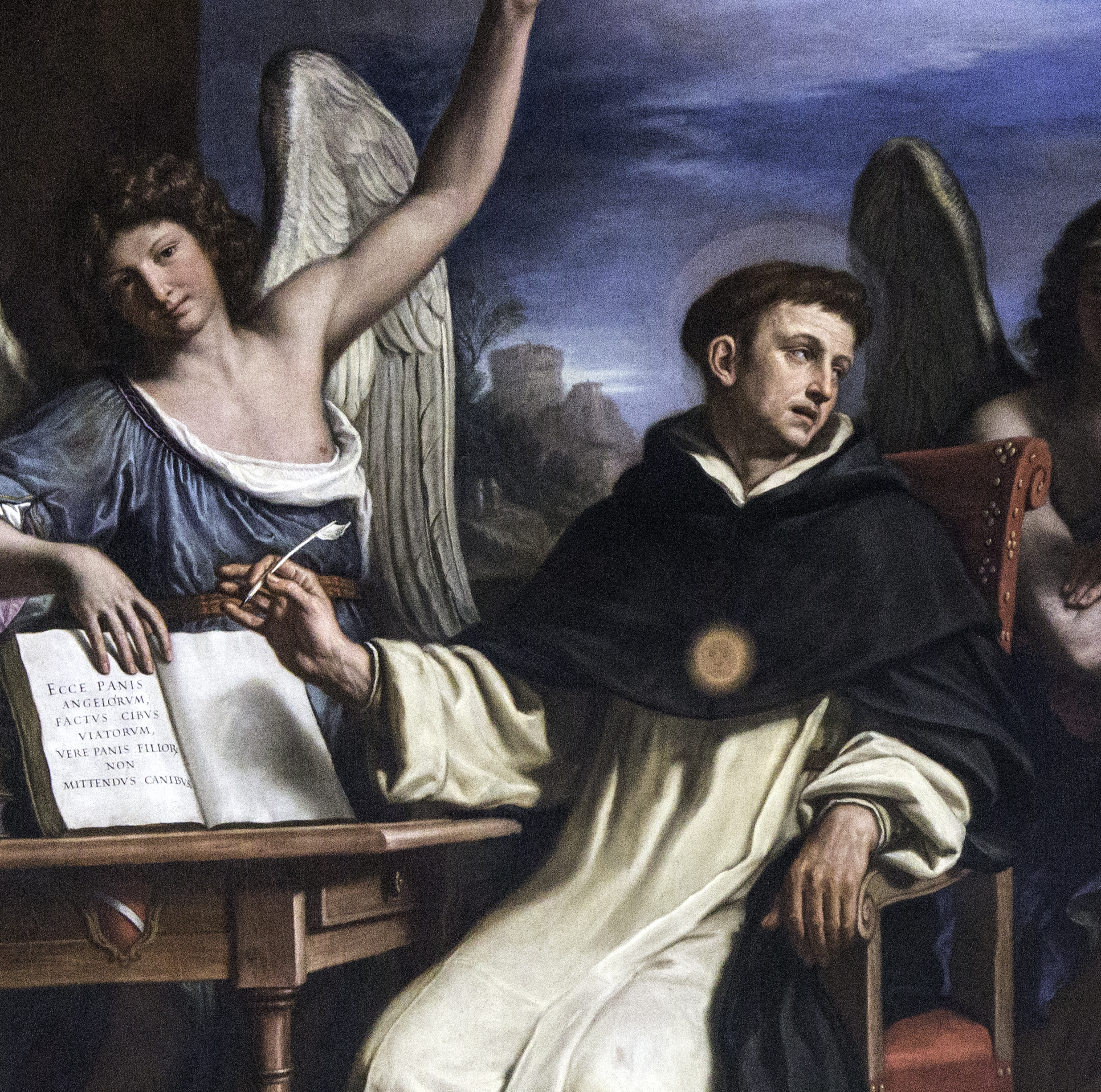Chapter 18: Equality And Union¶
Numeric unity of nature and existence makes the three persons perfectly equal. And unity of existence means unity of wisdom, love, and power. Thus, to illustrate, the three angles of an equilateral triangle are rigorously equal. Hence, in God, to generate is not more perfect than to be generated. The eternal generation does not cause the divine nature of the Son, but only communicates it. This divine nature, uncreated in the Father, is no less uncreated in the Son and in the Spirit. The Father is not a cause on which the Son and the Spirit would depend. He is rather a principle, from which, without dependence, the Son and the Spirit proceed, in the numerical identity of the infinite nature communicated to them.
Again to illustrate. In the equilateral triangle we have an order, of origin indeed, but not of causality. The first angle drawn is not cause, but principle, of the second, and the principle also, by the second, of the third. Each angle is equally perfect with the others. The illustration is deficient, since you may start your triangle with any angle you choose. But illustrations, however deficient, are useful to the human intellect, which does not act unless imagination cooperates.
This perfect equality of the divine persons expresses, in supreme fashion, the life of knowledge and love. Goodness, the higher it is, the more is it self-diffusive. The Father gives His infinite goodness to the Son and, by the Son, to the Holy Spirit. Hence of the three divine persons each comprehends the other with the same infinite truth and each knows the other with the same essential act of understanding. Of their love the same must be said. Each embraces the other with infinite tenderness, since in each the act of love is identified with infinite good fully possessed and enjoyed.
The three persons, purely spiritual, are thus open to possession one by the other, being distinguished only by their mutual relations. The Father’s entire personality consists in His subsistent and incommunicable relation to the Son, the ego of the Son is His relation to the Father, the ego of the Holy Spirit in His relation to the first two persons.
Thus each of the three persons, since He is what He is by His relationship to the others, is united to the others precisely by what distinguishes Him from them. An illustration: recall again the three angles in a triangle. How fertile is that fundamental principle that in God everything is identically one and the same except where we find opposition by relation!
The three divine persons, lastly, are the exemplar of the life of charity. Each of them speaks to the others: All that is mine is thine, all that is thine is mine. 565 The union of souls in charity is but a reflection from the union of the divine persons: “That all may be one, as Thou, Father, in Me, and I in Thee, that they also be one in Us.” 566 As Father and Son are one by nature, so the faithful are one by grace, which is a participation in the divine nature.
